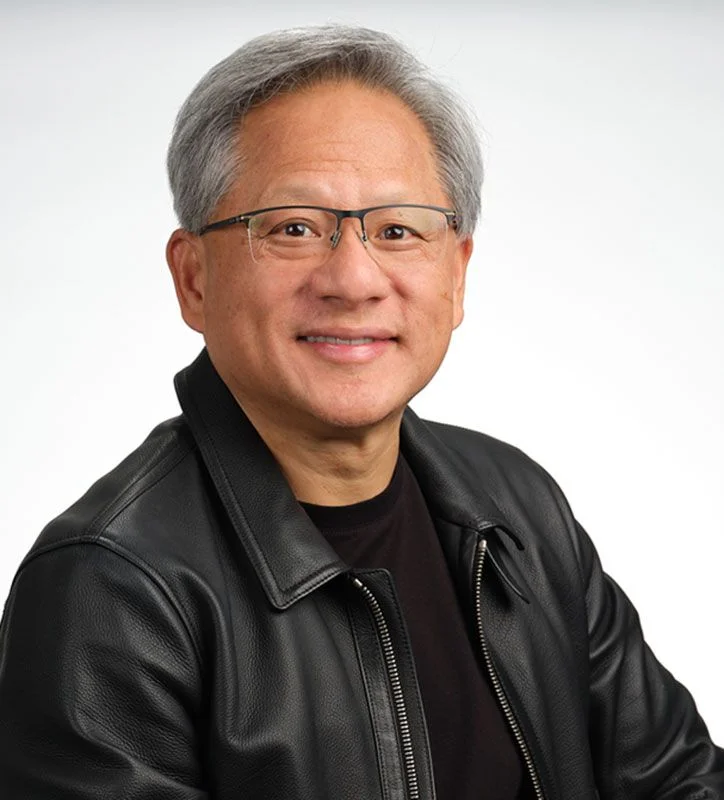Okay, friends, buckle up. We're about to dive into something HUGE. Nvidia. You know, the chip company? Well, they're not just a chip company anymore. They're practically printing money, and CEO Jensen Huang just dropped a bombshell that changes the entire game. Forget incremental improvements; we're talking about a paradigm shift so profound it's hard to wrap your head around.
Huang casually mentioned at the Global Technology Conference (GTC) 2025 that Nvidia has "visibility into half a trillion dollars of cumulative Blackwell and early ramps of Rubin through 2026." Half. A. Trillion. Dollars. That's not just a big number; that's a tectonic shift in the landscape of technology. It’s like Gutenberg saying he could see a billion books being printed, but instead of books, it’s the brains of the AI revolution. When I heard that number, I nearly choked on my coffee, because it’s not just about Nvidia’s bottom line, it's about what that demand represents.
What does that kind of demand mean? It means the AI revolution isn't coming; it's here. And it's bigger, faster, and more all-encompassing than anyone predicted. Remember when people were debating whether AI was just a fad? That debate is officially over. The sheer volume of orders for Nvidia's chips—specifically the Blackwell and Rubin lines—tells us that the biggest players in tech, the Magnificent Seven and beyond, are betting the farm on AI. They're not just experimenting; they're investing at a scale that dwarfs anything we've seen before.
And it's not just about the big tech companies, it’s about the trickle-down effect. Nvidia is working with Nokia to build AI-powered telecommunications for 5G-advanced and 6G networks. And Oracle to build an AI supercomputer for the Department of Energy. That’s everything from faster streaming to better scientific research.
Some might say, "Well, isn't this just a bubble? Won't the demand fizzle out?" Maybe. But consider this: Nvidia's chips aren't just for running existing AI models; they're for building the next generation of AI. They are the picks and shovels in the new gold rush. As Huang said, China makes plenty of AI chips themselves, and the Chinese military surely have plenty of access to chips that are created in China. So, whatever national security concerns, have to take into consideration the fact that China has blocked H20 [an Nvidia chip] and, so, in a lot of ways, China is saying that, ‘listen, we have plenty of AI technology ourselves,’

This is why Wall Street analysts are scrambling to revise their estimates. Current consensus estimates have Nvidia's revenue reaching $278 billion next year, but that number is almost certainly going to be revised upwards. The opportunity in AI is not slowing down but is still strengthening, maybe even accelerating. What makes it so compelling is that the most profitable companies -- the "Magnificent Seven" and other tech leaders -- are the ones funding it, which gives it sustainability. This is starting to look like an unprecedented growth opportunity. Nvidia surprised investors in September when the company revealed that data center spending could reach $4 trillion by the end of the decade.
Now, let's address the elephant in the room: Huawei. Huang has warned against underestimating them. This is a company with extraordinary technology. They dominate the world’s 5G telecommunication standards and technology. They build amazing smartphones, they build amazing chips, they’re incredible at networking. As Nvidia CEO Jensen Huang sends stern ‘Huawei’ warning: ‘It is foolish to…’, it would be foolish to underestimate them.
But what does this mean for us, the everyday people? What does a world powered by this much AI look like? Well, imagine personalized medicine tailored to your unique DNA. Imagine cities optimized for efficiency and sustainability. Imagine education systems that adapt to each student's individual learning style. The possibilities are endless, and frankly, a little overwhelming.
This also means we need to start thinking seriously about the ethical implications. As AI becomes more powerful, we need to ensure it's used responsibly and ethically. We need to have conversations about bias, privacy, and the potential for misuse. It's not enough to just build the technology; we need to build it right.
Nvidia's $500 billion forecast isn't just about one company's success; it's a signal that the future is arriving faster than we thought. It's a call to action for all of us—to embrace the potential of AI, to address the challenges, and to build a future where technology empowers humanity. The speed of this is just staggering—it means the gap between today and tomorrow is closing faster than we can even comprehend.